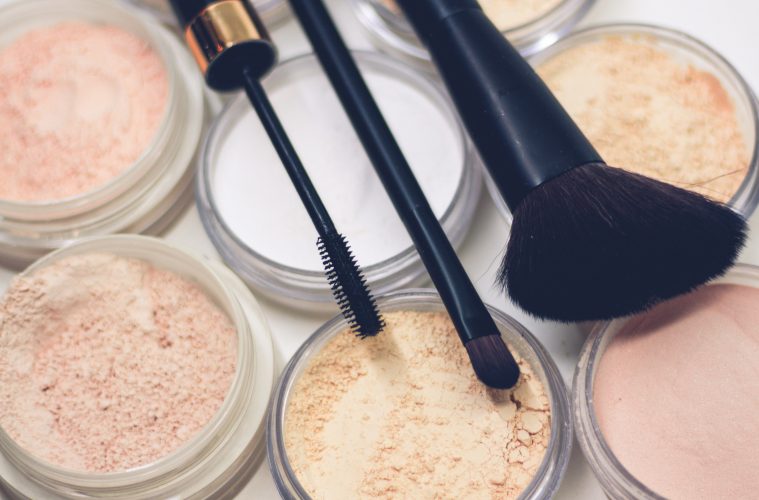Over the years many things have changed – new technological advances, new heath tips, and the beauty industry has been growing and expanding – but have these companies expanded enough?
Many people, both men and women, wear makeup in 2019, so these companies claiming to have a shade for everyone probably do, right? Well, not exactly. Some of these brands that claim to be “all-inclusive” still have not found the proper undertones, formula, or shade ranges for all people, while others are changing the game. A few of these brands include L’Oreal, Fenty Beauty, Cover FX, and Almay.
The biggest, and probably most well-known brand would be L’Oreal. Their TruMatch foundation line claims to have a shade for ALL skin tones: great slogan, right? Does the brand live up to its claim? The answer is no.
Unfortunately L’Oreal does not offer shades for the truly pale without a very strong orange, yellow, or pink base. Undertones like these are important because fair skin can have a very neutral undertone or subtle undertones, making it nearly impossible to find your true shade match without looking like you’re wearing a mask. The shades on the other end of the spectrum were also disappointing. None of the shades went very deep, and again they had very strong orange or red undertones.
The middle shades were plentiful and had true varying undertones; the fair and deep shades did not have this same variety. The concealers in the TruMatch line all have a strong yellow or orange undertone, perhaps for correcting undereye circles, but the fair shades were so yellow or orange that they were unusable on fair skin alone. The powders in the line had the same problems as the concealer and foundation. Overall, L’Oreal is NOT a true “all-inclusive” brand.
The next brand that claims to be “all-inclusive” is Cover FX. Cover FX is a luxury brand sold at Sephora and stores like it. Cover FX claims to have a shade for everyone, so do they? This brand actually does seem to have a shade for everyone!
They have different undertones such as neutral, pink, and golden. These undertones do translate both to the fair shades and deep shades. Cover FX also has their full shade range available in a wide variety of formulas, attempting to cater to all skin tones and types. Their concealers follow their shade range with them recently releasing a pure white concealer to help brighten or lighten concealers and foundations.
The only thing that could be worked on the in Cover FX line would be their powder foundations; they tend to run a little dark and the very pale would find an issue getting a powder foundation in their shade. Overall, Cover FX as a brand is working hard to have something for everyone!
A brand that has the shade range but not the formula range would be Fenty Beauty, the newest of the four brands mentioned. Though it has only been out a very short time, it has shocked the nation with its shade range. The brand was created by singer Rihanna, and she wanted to have a shade for everyone.
The Profltr Soft Matte Foundation has an amazing shade range, with incredibly fair and deep shades with proper undertones, but the formula is not suited for everyone. It is a soft matte, meaning that very dry skin and very oily skin would need some help from other products to be able to wear this foundation alone. Since Fenty Beauty is a newer brand, people hope that they will come out with different formulas to better suit all skin types.
Almay is another very well-known, affordable brand. How does their shade range hold up? Not well. Almay claims to have makeup that “transforms” to someone’s skin tone, but some of their foundations only come in three shades! Now, does that makeup really “transform” into your skin tone? No, it’s a sheer coverage so it only appears that way to people who fit in that range. Very fair skin and very deep skin can have some trouble with “transforming” makeup.
The other foundations in the line do not come in a wide shade range, and the undertones again are generally very yellow, orange, or pink. These strong undertones make it difficult for those with fair or deep skin to find a shade match because the undertones can take over the shade completely.
Generally, higher-end brands tend to have better shade ranges. Fair shade and deep shades require more pigments, and it can be difficult to have the same coverage in a very light shade, or to work out the deeper undertones for deep skin. It can be costly to make shades in all skin tones which is why so many people have issues with drugstore makeup; the prices are more affordable because the quality and selection is not always there.
Brands like Fenty Beauty and Cover FX are stepping up the game by releasing shades in a very wide range, but drugstore brands also need to step up their game. Many people find that they have to go into a store like Sephora or Ulta to get shade matched with a high-end foundation because the affordable brands do not offer that same range.
The popularity of some higher end brands comes, in a big part, from their extensive shade ranges. While L’Oreal and Almay do have wonderful formulas in their lines, neither of them are “all-inclusive,” and unfortunately while writing this article, I did not find a single drugstore brand that was. I also found that there are many high-end brands that did not offer a wide shade range despite being more expensive. As a whole, the beauty industry needs to expand and truly become “all-inclusive.”

